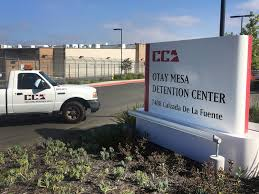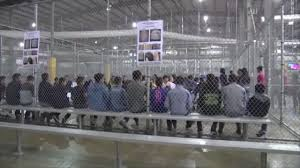
Table of Contents
Recent reports have surfaced alleging that migrants detained at U.S.-Mexico border facilities have been subjected to sexual assault by detention center staff. These claims, made by multiple migrants, have ignited widespread outrage and calls for thorough investigations to hold those responsible accountable.
### The Allegations us-mexico
Migrants who have crossed into the U.S. from Mexico and were subsequently detained in border facilities have come forward with accusations of sexual abuse by staff members. These allegations include forced sexual acts, inappropriate touching, and coercion. Several victims have reported that they were threatened with deportation or further harm if they did not comply with the demands of the perpetrators.
According to advocacy groups working with migrants, these incidents are not isolated. They point to a pattern of abuse within certain detention centers, exacerbated by the power imbalance between staff and vulnerable detainees. Some migrants claim they were assaulted during routine searches, while others allege they were targeted in areas of the detention facilities with limited surveillance, making it difficult for them to seek help or report the abuse.
### Legal and Human Rights Concerns
The allegations have raised significant legal and human rights concerns. Sexual assault in detention settings violates both U.S. law and international human rights standards, which mandate the protection of individuals from such abuses while in custody. Under the Prison Rape Elimination Act (PREA), detention facilities are required to take specific measures to prevent, detect, and respond to sexual abuse of detainees. However, these recent claims suggest that these safeguards are either not being properly implemented or are being actively ignored in some facilities.
Human rights organizations have condemned the alleged abuses, calling for immediate action to protect detainees. They have urged the U.S. Department of Homeland Security (DHS), which oversees border detention centers through Immigration and Customs Enforcement (ICE) and Customs and Border Protection (CBP), to launch comprehensive investigations into these allegations. Advocates are also demanding that any staff members found guilty of such crimes be prosecuted to the fullest extent of the law.
### Government Response
In response to the allegations, DHS has stated that it takes all claims of sexual abuse seriously and is committed to ensuring the safety and well-being of individuals in its custody. The department has indicated that it will investigate the reports thoroughly and take appropriate action against any staff members found to have engaged in misconduct.
They point out that previous reports of abuse in detention centers have often gone unaddressed or have resulted in minimal consequences for the perpetrators. This has led to a climate of impunity, where detainees feel unsafe reporting abuses, fearing retaliation or disbelief.
### Broader Implications
These allegations of sexual abuse at U.S.-Mexico border detention centers contribute to the ongoing debate over the treatment of migrants and the conditions within detention facilities. The reported incidents highlight the vulnerabilities faced by migrants, particularly women and children, who are already in precarious situations due to their undocumented status and the trauma of fleeing their home countries.
The situation also raises questions about the adequacy of oversight and accountability mechanisms within DHS and its subordinate agencies. Advocacy groups argue that without significant reforms, including increased transparency and independent monitoring, abuses will continue to occur.
### Calls for Action
In light of these allegations, human rights groups, legal advocates, and members of Congress have called for several actions, including:
1. **Independent Investigations:** There are demands for independent investigations into the allegations to ensure impartiality and transparency. This could involve outside agencies or international bodies with expertise in handling cases of sexual abuse in detention settings.
2. **Policy Reforms:** Advocates are pushing for reforms to existing policies to strengthen protections for detainees. This includes improving access to legal representation, enhancing the visibility and accessibility of reporting mechanisms, and ensuring that all staff are properly trained and held accountable for their actions.
3. **Support for Victims:** There are also calls for increased support services for victims of abuse, including access to medical care, counseling, and legal assistance. Advocates emphasize the importance of creating a safe environment where detainees can report abuses without fear of retaliation.
### Conclusion
The claims of sexual assault by staff at U.S.-Mexico border detention centers underscore the urgent need for accountability and reform within the immigration detention system. As investigations proceed, the focus must remain on ensuring justice for the victims and preventing such abuses from occurring in the future. The situation is a stark reminder of the vulnerabilities faced by migrants in detention and the critical importance of safeguarding their rights and dignity.








